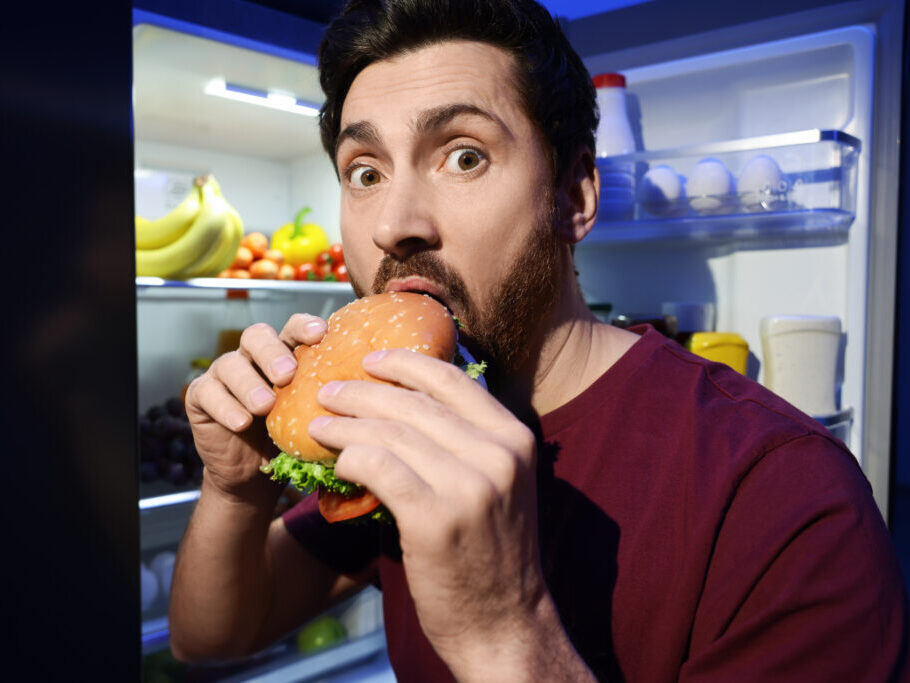Life is made up of many relationships. Everything and everybody that we interact with is a relationship of some kind. Each relationship with people, objects, pets, etc., is uniquely defined depending on our level of interaction, emotional attachment and importance in our lives. All relationships can be a positive or negative influence, or a combination of both.
So, our relationship with food is one of the many that make up our spider’s web of interacting relationships. It can be very complex and impact who we are as a person, physically, mentally and emotionally. Our love or hate of food can be a healthy or unhealthy relationship, but more likely to be somewhere in between. For many of us, we are constantly reminded of our relationship with food throughout the day. It can be an attack of the munchies from subconscious triggers, craving for something that is sweet or full of carbs. On the other hand, there can be negative triggers for a whole host of reasons. It could also be when we look in the mirror, or how we move with ease or restriction, or the tightness and fit of our favourite clothes. It is often said that “we are what we eat”.

Lost touch with the nutritional value of our diet
Lost touch
Since the 1960s the general population has lost touch with a basic understanding of diet, food and nutrition. We have lost touch with the knowledge of where food comes from and how it is produced and manufactured. Several recent studies show that more than half of the UK population have several takeaways a week. When we eat takeaways or eat out, there is even less available information of what goes into the food. The growth in eating takeaways has rocketed since the pandemic. For many, taste, flavour or style have overtaken choice based on nutritional needs, so that we are increasing our consumption of ultra processed food (UPF) that contributes to the increase the risk of cardiovascular disease (CVD), cancer, diabetes and dementia. British Heart Foundation: Ultra Processed Foods

Suppliments aren’t a life preserver
Lifebelt approach
Poor nutritional knowledge has given rise to the aggressive marketing by the supplements industry. Most adults in the UK take supplements to maintain health and well-being, driving a multi-billion-pound industry. Unfortunately, the increased usage of supplements is not reducing adults from developing metabolic syndrome, which is the precursor to chronic diseases. Supplements can be helpful in some situations, but they will never make up for poor nutrition and lifestyle.
Time to wake up!
It really is time to wake up, because your relationship with food could be making you ill or even killing you. I know that sounds very dramatic, but it’s true. We have become passive in our choices are guided by marketing and convenience. We hear the distant messages of “5 a day”, less salt and avoid processed food. But as soon as our taste buds are stimulated, we are gaga for sugar and processed carbs. Then we get cravings for the things we miss, which are usually loaded with carbohydrates and sugars. Metabolic syndrome develops over years, and we don’t notice it. Eventually blood test results come back we can see the markers of high triglycerides, high LDL, low HDL. Next, we are being prescribed medication for high blood pressure and cholesterol the rest of our lives.
If that’s not a wake-up call, we will still be walking towards life limiting diabetes. It is becoming acceptable are prescribed blood pressure medication and statins as we race into middle age.
You have the power
So, if you’re in your 30s, 40s, or older, it’s time to take action to prevent metabolic syndrome from developing by avoiding ultra processed foods, cutting down of carbohydrates and being active. Change or healthy living is not something that happens to someone else and you can take control. It’s never too late to improve your health and future wellbeing.
If you want to know how, please email info@purebodyfix.com for more information.






